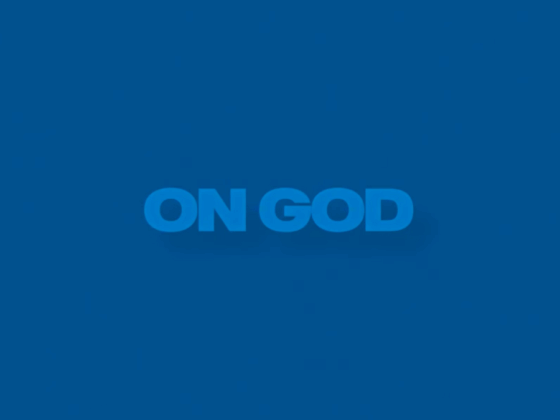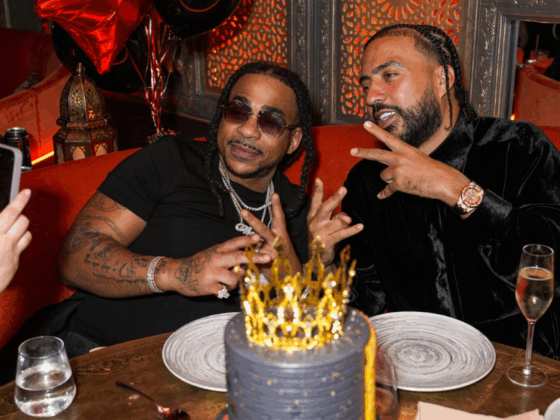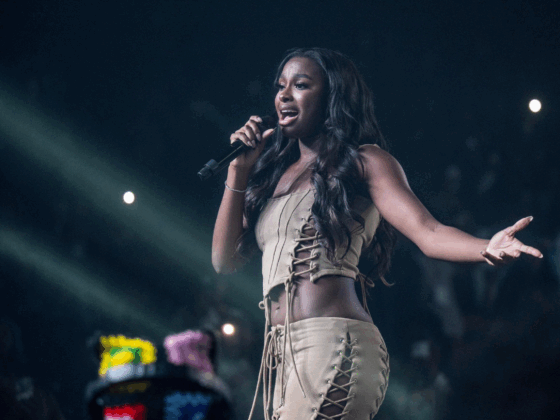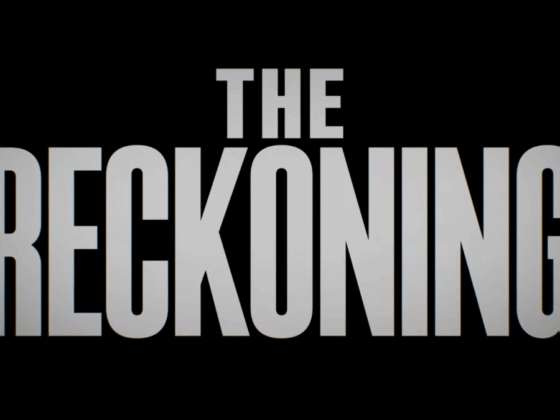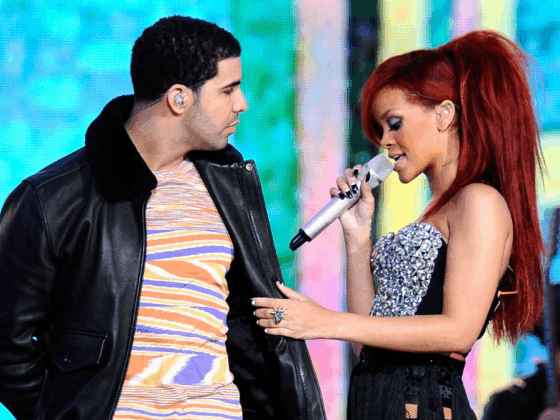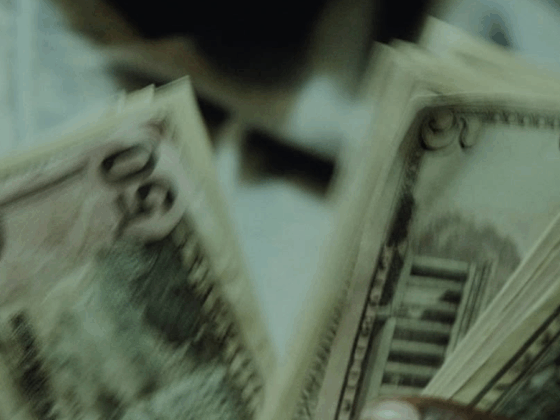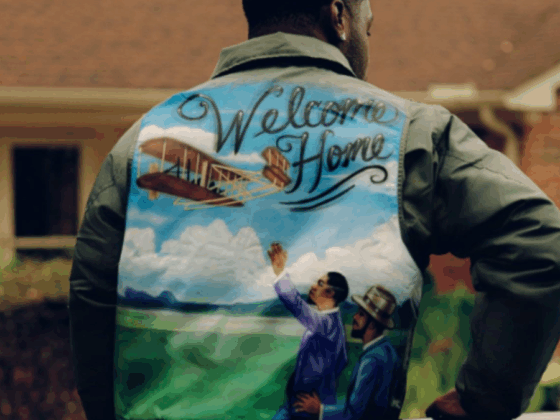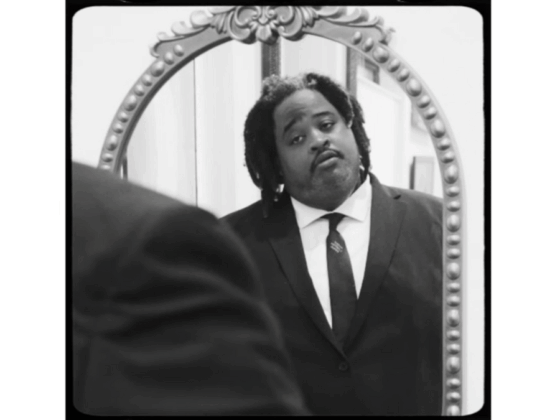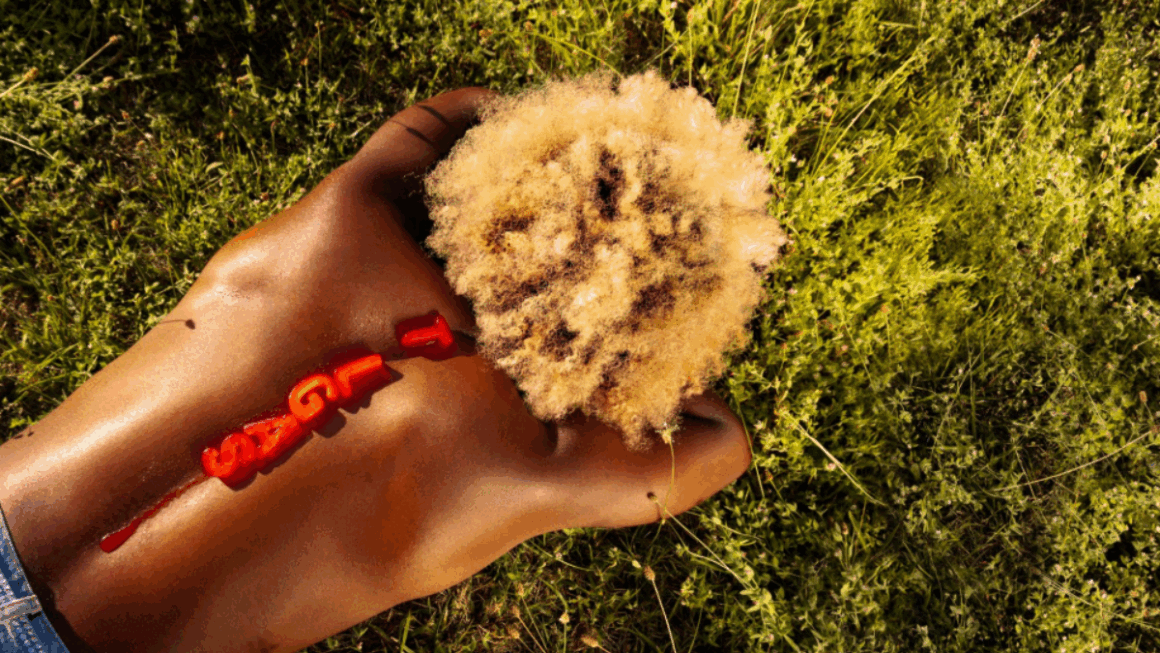
As summer fades, Reggie Becton is leaning into a new season of his artistry. With his latest LP, The Last Great American Summer, the DMV-raised singer-songwriter sheds the darker tones of his Sadboy era and embraces something brighter, sharper, and more expansive. The 10-track adventure is both an audible diary entry about freedom and an open conversation on what it means to enter a new chapter of life with clarity, fire, and purpose.
Exiting his 20s and entering his 30s since the development of his previous project, SadBoy Vol. II, Becton’s perspective on what happiness and self-discovery means have evolved. Once characterized by his ability to convey the emotion of sadness in the form of tracks like “Call” and “Leaves,” he now speaks about identity and growth with a conviction that bleeds into the music. The shift is apparent in everything from the album’s color palette to its more active voice lyrically. Where his earlier work lived in shadow and moonlight, this one insists on sunlight, with features from Tiara Thomas and D Smoke adding new textures to his evolving soundscape.
The journey to the release of The Last Great American Summer is a story of resilience, risk, and reinvention. Over the past two years, Becton has navigated industry changes, creative roadblocks, and personal breakthroughs. Along the way, he penned a Grammy-nominated title track for Kehlani, leaned on his community of mentors and collaborators, and learned the value of celebrating small wins. Each experience shaped The Last Great American Summer, a project that captures both his creative restlessness and his steady grounding.
The conversation that follows unpacks the layers of that journey — from the intentional decision to make this album the antithesis of Sadboy to the importance of songwriting as a craft, and the three words that guided the process: fear, fire, and freedom.
Ryan Shepard: I guess the first thing that I would ask is just, more generally, it’s been wow, it’s been two years. So how have you just been over these last two years? What’s the difference between Reggie in 2023 and Reggie in 2025?
Reggie Becton: I feel like I’m a lot less sad, of course, and I feel like I understand more how to process sadness in a healthier way, maybe. I think that’s a big difference. I think that I’m a lot more rooted in who I am these days and who I want to be. And I think that was a big part of the self-discovery on this album. Part of the journey of the start of the album was an identity crisis, in a way, of me turning 30 and figuring out, “Alright, I’ve lived on this earth for 30 years. That’s a third of my life, if I’m lucky. What am I going to do with the rest of it? I don’t want to live the next third or the next half for somebody else. I want to live it for myself, and live it on my terms.”
I was also going through industry changes in the last two years. The industry is shifting so fast. It’s been like 18 months since SadBoy Vol. 2. And since then, how you promote music, how you promote yourself as an artist, the platforms, the name recognition, the artists—everything has changed. The artists that I was like, “Oh, I want a feature by this person” a year and a half ago, may not be the top artist or as fast and vibrant of a star right now. It changes so fast to the point where you almost can’t sit down and take a break and think about where you are in life and how that aligns. So I think that dealing with the whirlwind of that and the learning curve of things that happen when you give some ownership away is what I’ve been doing. I’ve just been figuring it all out.
Ryan Shepard: Going back to what you said about not feeling as sad, one thing I guess I noticed in the difference between this project and the SadBoy series is the SadBoy series had a black, steely gray, kind of color and tone to it. The entire visual series was shot at night. Then we get to “Die Young,” or you get to, “If I,” you’re outside, you’re having fun, it’s brighter for you. Was that a conscious change, or was that just something that happened naturally over time?
Reggie Becton: Honestly, that was, I think it was by the end of, I want to say, maybe about SadBoy Vol. 2. I kind of started working on this in a way, and I was kind of done with sadness. People started calling me “Sad Boy,” and it started to annoy me. And as much as I love the world that we were able to build with SadBoy, I knew that whatever I did next, I wanted it to be the opposite. I felt the opposite, so I wanted to be the opposite. I’m happy that some of those intentional details we thought about were like, you said, all the videos on SadBoy were at night. So when we started to think about visuals for this album, it was like, “Yo, I don’t want to be in a nighttime setting.” I wanted it to be reflective of this. SadBoy, again, was gray and black. With this, I was like, the color red is inspiring. I remember when I was making SadBoy, I wore black for like, one whole month at some point. With this, I feel like red truly has been my color, and that’s been reflective in some of the things that I’ve been wearing consistently. I’ve been wearing a lot more red because it’s inspired me. It’s like passion, fire, uncaged, intense. And that’s all the things I’ve been feeling as I kind of figured this little life of mine out. So yeah, I would say that was very intentional to make music, make visuals, and make a world that felt like a complete contradiction of SadBoy. Even the vinyl design, when it comes out, the label is actually formed in a smiley face to kind of even contradict that more.
Ryan Shepard: Gotcha. I guess before we go fully into the album, there is one thing I wanted to ask you that’s separate from the album, which was working on Kehlani’s album. You had previously worked on Alex Vaughn’s project. You had written for other people. For you, one, how did that come about? And two, walk me through your reaction when you find out that it’s nominated for a Grammy. Where are you sitting? What are you thinking? What’s going through your mind?
Reggie Becton: Alright, so how this came to be, the A&R, who was the lead A&R on that Kehlani album, was someone who was a big fan of mine. She brought me in on the project, basically, and we started working on the project. Fast forward, I did a couple of sessions, in-studio sessions. Didn’t really get anything, didn’t really land and stick. A couple of ideas were cool. Then finally, it was like, “Yo, we’re going to San Diego. We’re doing this camp. You want to come?” I went to the camp, probably was having the worst experience for the first two or three days because I was surrounded by some of the top writers, people that I thought were some of the coolest people. Kehlani is there, just walking around, someone who I’m a big fan of. And I’m just like, “Okay, if this is really where I’m at right now, you want to create something that’s the best thing you’ve ever created,” and you’re just trying to figure it out the whole week. And we’re in this house, but I always tell people, it feels like a house with no windows because you’re just working constantly. You know how you just lose track of time? It’s like that. You’re in this nice house, but you’re not really paying attention, taking it all in. And then finally, one day, my homie A sent me a beat. I started writing to it. I was like, “F*** it. I’m just gonna go in this room by myself and write to it.” And that was the song I wrote. And it was “Crash,” and that became the title track of the album. After I wrote that song, all the other things just kind of took the load off when she said she liked something I did. And then we just, then I got to start having fun, really enjoying it, and it was a great time.
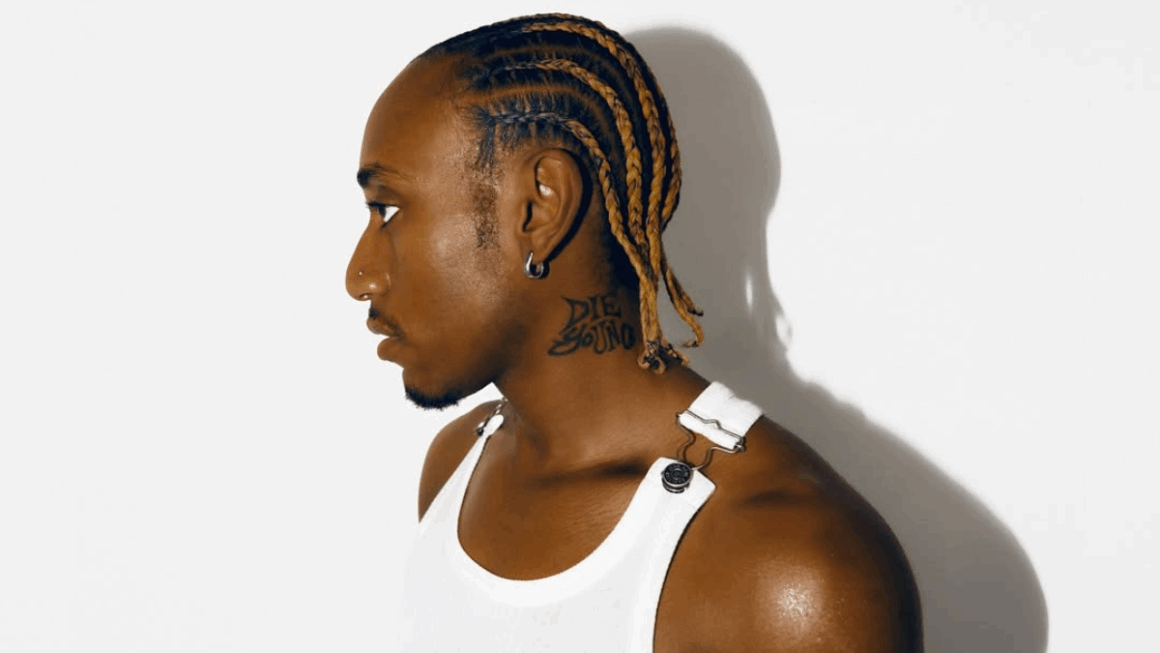
Ryan Shepard: Dope. I guess that brings me to the question I wanted to ask. One of the things that I guess, off the back, when I got the link to the album, was the D Smoke feature and the Tiara Thomas feature. The previous project, a lot of the features were people that were your peers, people that were in your age range, that were coming up with you. Now you’re working with Tiara Thomas, who’s written—she wrote on Bad, she wrote a lot of stuff. She’s one of the greatest songwriters of our time, arguably. I want to start with the Tiara Thomas one because for me, when I listened to the album, it sounded different than anything on the album in terms of just the tempo. It’s slower. It has an emotion to it that I guess it’s kind of hard to describe. But for you, how did you connect with Tiara? And then two, why that particular song? Why not put her on one of the, I guess, the “DND” where you could have a conversation where she plays the role of the girl?
Reggie Becton: Yeah, I would say, I connected to Tiara through songwriting. I did a couple of sessions, actually, for a project she was working on at the time. This is maybe like 2022, maybe 2023, is when we first connected. Yeah, shout out Lauren Kennedy, who connected us. To me, that was honestly a dream come true because I’ve been a fan of Tiara Thomas since college, since her first project. I’ve been a fan, but not only just a fan of that song, I went and listened to her project. So she, like, “Sadly Made One Night,” she has all these hit songs, in my opinion, that I feel like she’s one of the greatest writers, artists of our time. But when I got the chance to meet her and she was just so nice, so inviting, so warm, I always knew that I wanted to do something with her. And the crazy thing about “Simple” also is “Simple” comes from a demo, maybe from like, 2019, to be completely honest. Me and Jordan Hawkins had a session with another artist, and we were just messing around, giving this artist all these ideas. And one of the ideas was the guitar chorus was “Simple.” I always kept that song in the back of my head, like, “I want to use this song for something.” And it never really came to fruition. Then when we started to make this album, it started off as like, this Americana Folk Yacht Rock album that I was trying to create. And I knew that if that was the sound, “Simple” would be a great addition for that album. And the reason that I thought of Tiara, after we did the first version, I took it to my homies, JV, Aidan, and Rohan. We all got in a session, and we kind of tuned things up and got it to where it would be a Reggie Becton song. I was heavily inspired by James Fauntleroy, too, as I was writing this, and the styling of the vocals. To me, loving Tiara’s songwriting, and I also think that she plays guitar. I think if you listen to her, she’s from Indiana, so I think if you listen to some of her early music, it’s very folky, very acoustic-driven. It’s very, like, country in a little bit. And I knew that she would sound amazing on “Simple.” I called her and texted her, like, “Yo, would you be down? I got a song. Would you be down?” And she listened to it, and she loved it. We got in the studio, we wrote it together. Then she came back. She recorded her part. We came back. We did the final mixing it up together. So it was a really easy process. And it’s definitely one of my standouts on the album.
Ryan Shepard: Definitely one of the things I like about that track. I believe that’s the track that has the outro where it feels like your friend is talking to you and telling you to live in the moment and trying to just be there and be present for you. How do you balance that in your career, where you’re trying to achieve more, but you’re being thankful for the things that you have?
Reggie Becton: I’ve been trying to do a better job of that. I think that’s something that, honestly, Megan has told me a lot about, of just celebrating small things. I feel like before I met Megan, I didn’t really celebrate life as much, or just little things. And I feel like nowadays, we celebrate every little thing. Like, if somebody gets a job, somebody does a good job at work, if it’s a million streams, 100,000 streams, we really started to just celebrate all the things that we always, ever wanted. If it was a goal that we wrote down, it was like, “Yeah, let’s do this. Let’s get a bottle. Let’s go here. Let’s plan a dinner.” “This song got a million streams, let’s go to dinner.” It would be all my closest friends. So I think that’s been a big part of helping me stay present. I also think, just taking a step back and breathing through things, you know, like, really just breathing through things. And also remembering that a lot of the experiences, whether good or bad you’re experiencing right now, are things that you prayed for. And then also, I think that I always remember, someone is actively praying to be in this exact space. This interview with us, too, someone is praying to be interviewed by you. And I think that always keeps me humble, keeps me in gratitude, and I think it allows me to stay present in the sense of, “Alright, it’s not all that.” Then also, I just remind people that we’re not carrying cancer. It’s music. We’re not carrying cancer. Music has the most powerful effects on the body and all those things, but we ain’t carrying cancer, so we should not take it as serious as we do.
Ryan Shepard: It’s interesting that you put it like that because I was having this conversation with one of my friends who made the jump from Atlanta to living in LA to work on a movie. And he’s just, I was just like, “Why do I feel like I’m more excited for it than him?” And he’s just like, “I gotta do more. I gotta do this.” I’m like, “You got a movie coming out! Your name is gonna be in the credits of a movie.”
Reggie Becton: And it’s like, I think, it’s like we forget that not a lot of people can say it, even the whole Grammy thing. There’s a lot of conversation surrounding, to be frank, in the music industry, surrounding nominated versus contributed, you know? “Did you contribute to a nominated project, or did you get nominated?” And there’s a lot of rules and regulations, as we know, with Grammy nominees. And I think that a lot of dialog I’ve seen around it has been kind of annoying because to me, it’s like, you want to tear people down. Let’s say, like, me personally, Crash gets nominated for a Grammy. I write five songs on it, five out of 12 songs. I’m not technically nominated for a Grammy, but how can you disregard my contribution to this album, but the album is nominated? And then now there’s people in the industry who are in the same boat as me who try to play me for saying that I’m Grammy-nominated, or whatever I say. It’s like worker against worker instead of us attacking the system at hand. It’s no way someone should be able to write 40%, 50% of an album that’s nominated for a Grammy and not be Grammy-nominated. You have to think about that and wonder, “Why is that?”
Ryan Shepard: So yeah, that’s true. I was thinking of Tank, when he has the R&B Money podcast, he was talking about how he and J Valentine always joke with him that he doesn’t have a Grammy because I guess because he wrote on the album. But he doesn’t actually get the trophy. It’s a certificate. It’s weird, but it’s just like, it’s so weird.
Reggie Becton: Yeah, and I get it, you don’t want to give a trophy to everybody. But let’s call it what it is. What is it really about? It’s about not giving a trophy to everybody to remain exclusive, and that’s okay, but don’t try to play people who’ve been working hard. Songwriters and producers are the backbone of the industry, especially songwriters. Songwriters don’t get paid up front. And even, going back to the original question, that was another reason when I started to look for features. I also wanted to work with songwriters because I think songwriters are some of the coolest f***ing artists, probably the better artists. Destin Conrad was a songwriter. He’s one of the best voices in R&B right now, arguably the best.
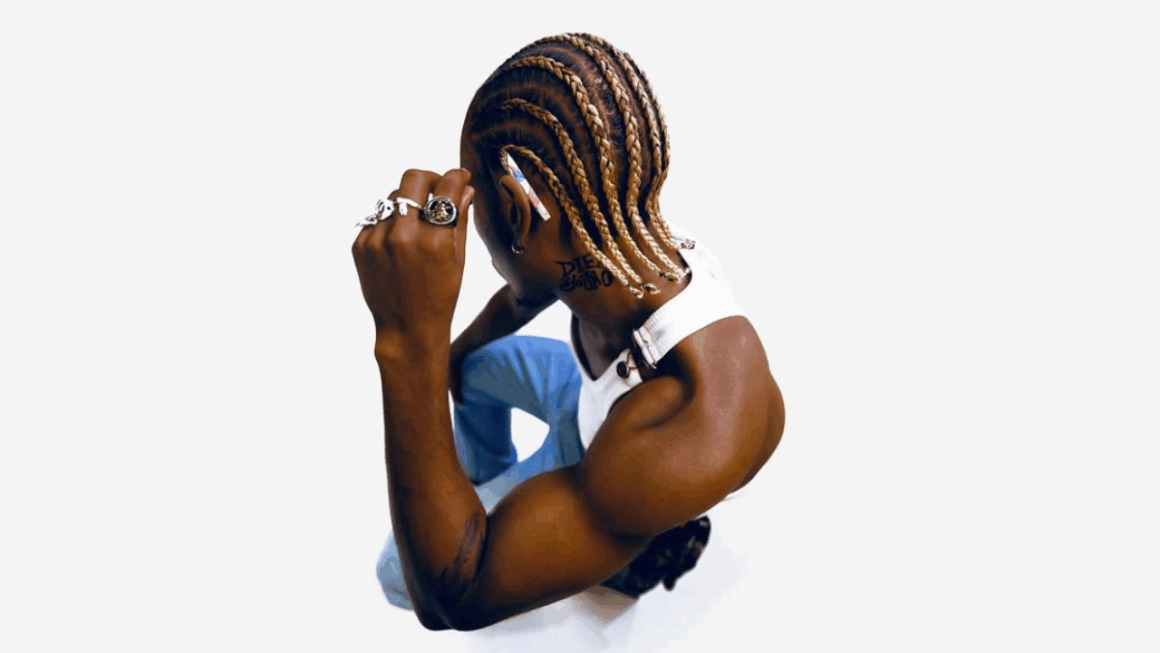
Ryan Shepard: That’s true, because he’s been on the run, right bro? He’s been on the run. I guess, going off of that, just keeping you—you mentioned, I know we had talked about, during the SadBoy era, that you wanted to work on a rock project at some point. And this sort of feels like a piece of that, if not the project itself. For you, one thing that I noticed is guitars are a constant throughout this project, especially during “Die Young” or different elements of the album. For you, how do you go about producing a rock-leaning or a country-infused project, as opposed to working on a traditional R&B project? From a production standpoint.
Reggie Becton: I think for me, it was pretty easy. I think that, one, you said, I’m pretty much a guitar-driven artist. A lot of my songs are just guitar-driven. I love guitar. I don’t even know when I fell in love with the guitar, I only know why. That’s the foundation of all my music, to be honest. But I do love guitar. I don’t play guitar. I play a little bit, but I don’t play on any of these songs. No one in my family plays guitar, so I don’t even know where this love for guitar came from, but here we are. So for me, working on a rock album, it’s pretty simple because I listen to Bon Jovi. I love Christopher Cross. I love Toto. So I just made this big playlist with my homie, JV, who’s the executive producer. We had this big running playlist of just some of our favorite rock songs or rock-infused songs. A lot of Prince, some Gladys Knight on there, Billy Joel, Steve Lacy. And we would just listen to this playlist. And it was also weird because “Purple Rain,” for instance, I love that song. It’s very like, Vinny and the Jet. It’s very Prince. And the reference I sent over was not that. The reference I sent was like this R&B song. And I was like, “I love the saccades of these kids. What do you think of this?” And I sent it to JV, and then JV comes back with “Purple Rain.” And that song kind of is really the nucleus of the project, which is why it goes first. I feel like it’s the perfect world. It sets the world up perfectly that I’m trying to welcome you into. And it’s the first song we did. “Simple,” was this older song that I didn’t know was going to be on it, but “Purple Rain” is the first song me and JV did, knowing that we’re making this album with the intention to make an album. It was the first song we did, and it was the one we were like, “Okay, this is the sound. How do we keep pushing this forward and making this something?”
Ryan Shepard: Gotcha. One thing that I noticed, or at least I felt differently about, listening to going back and listening to the SadBoy project and then listening to this, is it feels like you’re more active in the way that you talk about love. And what I mean about that is, in the previous project, it felt like you were experiencing sad breaks. You were feeling sadness, and it was happening to you as opposed to on a song like “Fake,” on a song like “Pretty.” It’s just like, you’re calling people out. Is it different when you’re writing it, or is it sort of the same as it just coming out? It’s an emotion that it comes out the same way regardless.
Reggie Becton: I think this album, I was finding my voice. Going back to that identity thing. I think a big part of my identity development was being vocal about things that bothered me, things that upset me. Being able to say, “This is when, where, and how you had me fed up.” And I think with this album, you’re getting a lot of that because, again, I just was like, “I gotta let this s—t go.” I think that with new experiences comes new feelings and new emotions. And I think also that having new experiences in romance and love and trying to figure this s*** out, you’re just like, “Alright, this is what I got today in the studio. Let’s do this.” Like “Fake,” I’m like, “Yeah, let’s crash out. Let me tell you exactly how you got me messed up.” And this is your song. Like, you can get a happy song, you get a bad song, you’re probably gonna get a song. And then with “Pretty,” I call it “Pretty Limited Style,” saying you can, you can write that. I said “Pretty B—s,” just because I don’t like saying this uncalled for. But even with that song, that one was just like, I just kept seeing the concept of the Kanye West, the “Prettiest people do the ugliest thing.” And that’s what, and there was so many pretty people doing ugly things, aside from love, but just industry-wise, there were just a lot of things going on that I just looked at and was like, “Alright, let’s talk about all these people that are pretty on the outside and ugly on the inside.” And it’s not just about, it’s not necessarily wrapped around gender. It’s for anybody who’s pretty on the outside and ugly on the inside and doing some of the most evil things behind closed doors.
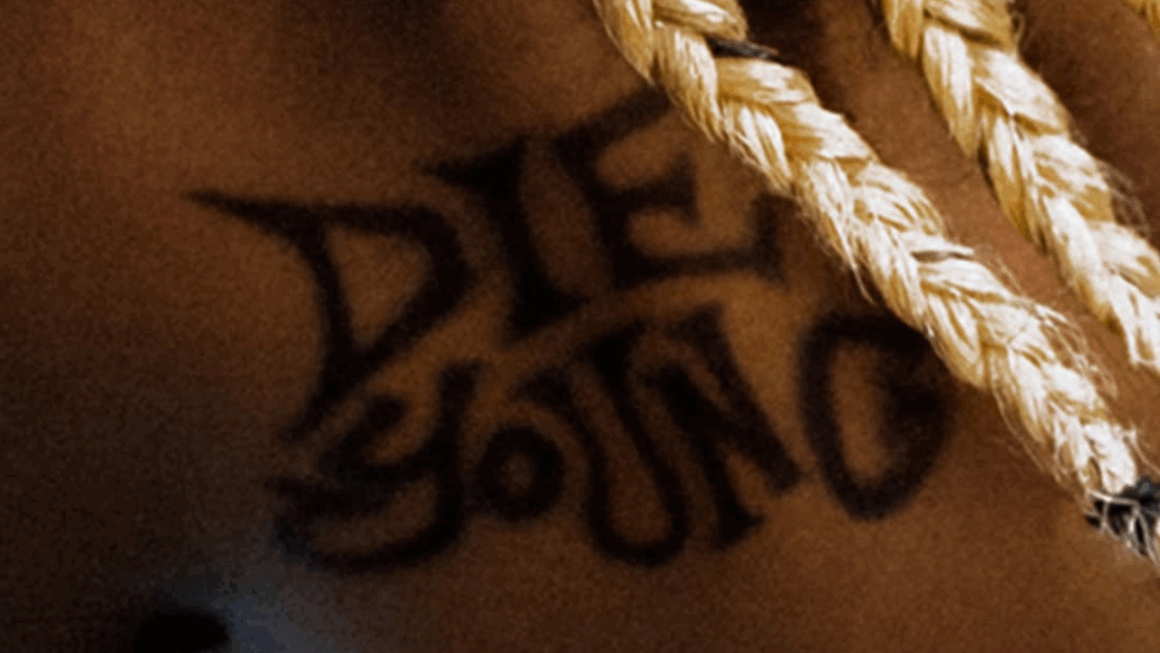
Ryan Shepard: I guess another thing that I didn’t notice is just in getting ready for this, is seeing people support you, having that community support. And I remember when you posted something about “Die Young,” and I saw Harmony Samuels shout you out, and just people that are around you, that are pouring into you. How has the support of getting that nod of approval from a Kehlani, getting that nod of approval from a Tiara Thomas, like songwriters and producers that you respect, how does that impact your confidence?
Reggie Becton: Honestly, it’s still some of the craziest things ever. When I think about me setting out, looking up to Harmony Samuels, and knowing his discography, and knowing all the things he’s done, to where now that I can call him and he’s like a big brother mentor to me. And I can ask him advice on this. Not only that, he was very hands-on in helping us pick the track listing of the album. He sat in the studio a couple of times. We recorded, and JV and Harmony are brothers, and they work together closely. So, there would be times I was in the studio with JV and Harmony would just pop in and be like, “What the hell is this? What do you all make?” And I also love the fact that he just let me and JV create. Most producers come in, and they hear something hot, and they want to come in. They want to hop on it automatically, see how they can help. He was like, “Yo, I love everything y’all are doing. I’m not getting in the way. This is a formula that’s working. It’s just you all too, just keep it here.” He would be motivating us to keep it here, keep it between us, and any way he could support outside of actually producing, he was down. So if it was a post, if it was like, trying to give me money for the project, he gave us bottles for the pool party event that we did. Any way that he could help, he did. And I truly appreciate him for really being hands-on with his project and also motivating me. Because as someone who was heavily inspired or just familiar with his work, it was a dream come true. And same thing with Kehlani, listening to Famous, Jermaine Dupri, Slim from 112. We talk often, you know. Having all these people that you looked up to, like Tiara, having all these people that you once were a fan of and still are a fan of, and now can call a friend and call a mentor. Can call up if you need advice. It’s just one of those feelings that you kind of never really take in. Going back to your friend that had the movie come out, you be like, “Damn, when I look around and see some of the numbers in my phone, I’m like, what the hell? I have this person’s number in my phone. That’s crazy.” And I think that as far as my career goes, it’s weird because I feel like I have a lot more industry, in a way, internal industry connections and external connections. And I feel like that is just creating this perfect storm. Whenever God chooses to press the button on my life, and I get that one thing that takes off, I feel like it’s gonna be the perfect, like, set in stone to where, I get all the things I get, all the accolades.
Ryan Shepard: I think it’s gonna happen soon, because I remember seeing, it was either last month or the month of July, I saw Tatiana Sneed tweet about your album, and I was just like, “Yeah, that made me happy.” I guess another thing that I wanted to ask specifically was about, you mentioned Harmony Samuels working on the track listing. I wanted to ask about the singles that you picked, leading with “Die Young,” and then I believe “DND” was the next one that came out. And those are from a sound perspective, like the feeling that I get from hearing “Die Young” and from hearing “DND” are very different, but they fit when they’re on the album. For you, why did you choose to pick—why did you choose “DND” to follow up “Die Young?”
Reggie Becton: Would you have picked a different single?
Ryan Shepard: I actually no. “If I” was my favorite song on the album, but I feel like, yeah, that “If I” was my favorite one, but I feel like, if I were to present the album and say, “These are the two songs you have to listen to to understand the album,” those would probably be the two I pick.
Reggie Becton: Yeah, I would say probably that’s why those two came out, literally, that they were the most identifiable of the world in a way. To me, “DND” was showcasing that, “Okay, this is a different sound. Sonically, it’s different, but it’s still an R&B project.” And to me, “Die Young” got across the message I was trying to convey, of “Live life to the fullest.” The sound, it’s R&B, it’s rock. It’s Kanye West influences, Miguel influences. Then you get this ending part that’s almost the title of that last album, without you knowing that the title is gonna be The Last Great American Summer. So it had all of these things there. But picking singles, I want to say, was very hard. We sat in a room and thought so long and hard about it and voted so many different times with different singles. And it was weird. This project was like, it was almost like going back to this theme of identity. We felt like, if I picked these two singles, it creates this project. If I pick these two singles, then it creates this project. I always wanted “Live and Direct” to be the first single. I just felt like, to me, that was a cool, summer slow burn record. Yeah, that’s always why I wanted to come out first. And then, time got away from us. We wanted to do four singles for this project, to be completely honest. And by the time we got to start releasing, for whatever reason, we only had time for two. But I always wanted it, if it was me in a perfect world, I think I would have led with “Live and Direct,” then went to “Die Young.” And also, we were building a track listing. And I just didn’t like, I was studying a lot of classic albums, and I was seeing how, like, I wrote a list of at least six different classic albums and where track listings and where songs kind of fail at. And I just didn’t want also, both of my singles to be, like, two and three. And “Live and Direct” and “Die Young” were always close to each other. So I didn’t want that to happen. That was another reason why I didn’t follow up with “Live and Direct.” But, like you said, I think in totality, I’m happy with the decision we made of “Die Young” and “DND.”
Ryan Shepard: I feel like I might know where you may go with this, but I want to ask it anyway. Is that you were talking last year about track listing, and you mentioned studying classic albums. And when I get in conversations with people about, “Oh, I like this era of music better than this era of music,” I always love the era that I’m living in, because I get to experience it in real time. But if there is one thing I could bring from older albums is the conciseness of those albums. They’re concise. You get in and you get out. It’s not that I don’t want to hear—I would love to get 20 songs from Kendrick Lamar, but maybe not get them all at once. I did appreciate the fact that this album was 10 tracks. You hit your marks. You got in and you got where you needed to be. Was it difficult to get it down to 10? Or was that always the goal to just be at that mark?
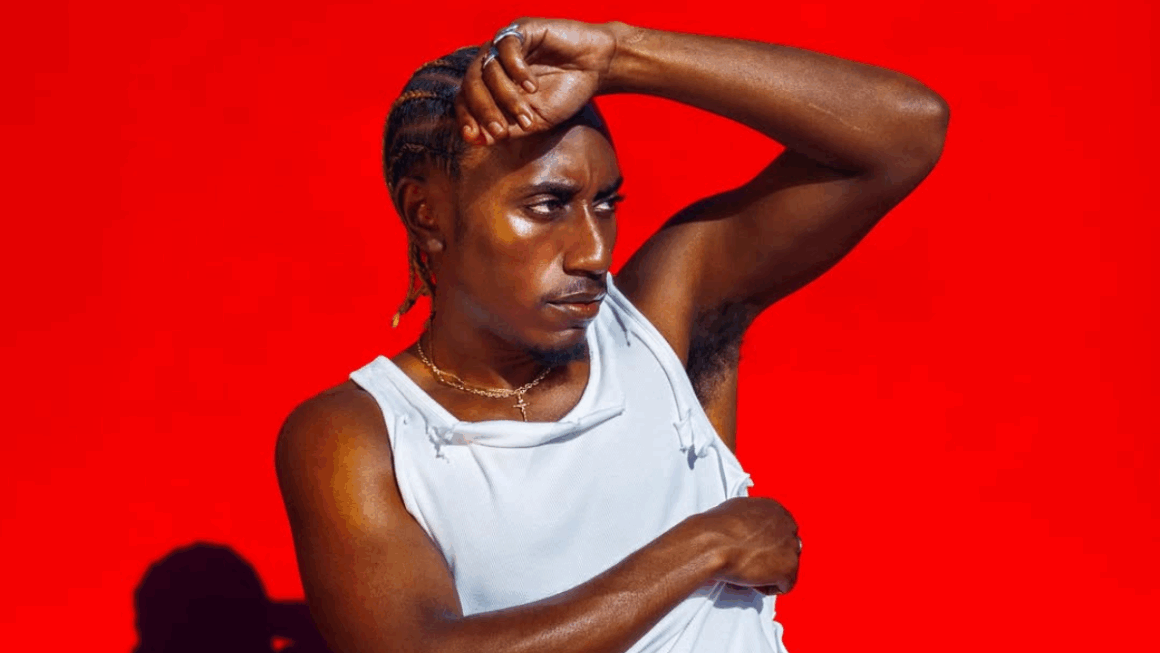
Reggie Becton: The goal was always to be at 10, maybe 12. But we recorded maybe 30-plus songs, over 30 songs. So I think it was very hard to get to 10. We had long conversations about that. And there’s still some songs that just the other day, I was like, listening to a different version of it. I’m like, “Damn, damn, damn.” But again, like “Simple,” a song from 2019, songs find their places. Especially for me, when you’re a writer, you can always pass some s*** off to another artist. But also I have the memory of an elephant when it comes to songs. So I never forget a song. If I love it, more than likely it’s going to come out somewhere. So, I think that was part. But I think a big inspiration was Michael. When we thought about track listing, Michael would just drop you in. That’s why there’s an intro for the project, and the intro’s on the vinyl record as, like, an exclusive feel. But we just felt like Michael would just drop you in the world. You would just press play, and the first song was just, like, “Wanna Be Startin’ Somethin’.” You’re in the world. We’re not gonna walk you into there. There’s no prelude. It’s like, drop you into the world, and let’s get on with the show. And I think we wanted to keep it 30 minutes because being in LA, the average drive going somewhere, you’re probably gonna spend 30 minutes in your car. So, even when we were talking to Harmony, we were still at 12 songs. We were at 12, and it was a cool 12. It probably was like 34, 35 minutes. And I think we just, “Alright, let’s just condense it,” because we were going places, listening to it, and by the time we got to the location or the destination, there would still be two songs left. And if you get back in the car, you’re not going to want to be like, “Alright, let me just listen to those last two.” You’re going to press play again from the beginning. So you’re always gonna miss out on those two songs. So we wanted to do something that was like, “Alright, if you get in the car, you got a 30-minute drive, you can hit a whole album when you get back.” You can hear it again on your way back. So that was the psyche that went behind that part.
Ryan Shepard: I had two more questions. The first one I wanted to ask you was about the decision to, you talked about in the beginning, about the way we market music is different. The way we enjoy music is different, and the way you put out this project is different. You put it out on even early so people could go and listen to it if they chose to do so. One, what has been the feedback from that? And two, I guess, more importantly, what was the decision? What led to the decision to put it on even early so that people could enjoy it?
Reggie Becton: I think the biggest decision, kind of for me, was I wanted to deliver this project on vinyl. I think from the beginning stages of the conceptualization of this project, I knew that I wanted it to be vinyl. And halfway while making it, there was a lot of conversations around like, “This is the best body of work you’ve made thus far. This s*** is kind of crazy. This is going to be the one.” And I knew I wanted to encapsulate the moment by making sure that I presented this project in a physical way, or to be felt in a different way. I’m an avid vinyl collector, too, and part of my journey of vinyl is collecting all my favorite albums on vinyl to pass down to my kid. That’s like a way like, legacy and the way my kids get to know me through music. And I’ve collected most of them. I’m still on the hunt for Brandy’s Full Moon. That’s one I don’t have. I don’t know where I’ll find it. I even found Prince’s Love Symbol, which is my favorite album, in this random vinyl shop.
Ryan Shepard: Oh, I was about to ask you, where did you find that?
Reggie Becton: You know Prince’s Love Symbol? Yes. Bro, I found it in this random-ass record shop. Was it in Canada? I think it might be Canada because I think Andrew was living there, my homie Andrew. So we were probably in Toronto. I did a show there at a off day. We went to these different record shops. And I bought this vinyl. It was like $180, but it’s literally my favorite Prince album. I have it in my home. It plays well. So yeah, I’m looking for a Brandy Full Moon. That’s like my next one. I know it’s gonna cost me a pretty penny. But yeah, so that kind of was my inspiration to do vinyl. And then, so when we were thinking about releases, we were like, “Okay, how can we incentivize people to buy the vinyl?” Selling physicals is hard, especially as a new artist. And Eden was a company that we’ve been talking to for a while. Around SadBoy, we were in conversation to do something that wasn’t able to make it to fruition. So this project came back around. We were like, “Okay, let’s try and see like West Reed and drive that conversation.” And we did. And the team there was super down to do the vinyl. I think also just like, trying to—I think physical is, I think the world, slowly but surely, is going back to physical. I listen to CDs, I think, most of the time. We can’t get there because a lot of us just don’t have a place to play physical. Everyone doesn’t have a vinyl player. Everyone doesn’t have a CD player in their car. But I know that vinyls are also a keepsake. You put them around your house. You decorate it. So I think I was also, I’m a visual artist. I’m very much as intentional as I am with my music as I am with visuals. Like, “Okay, this would be a nice another way to build and create in a world.” And the vinyl design is out of this world. So if you haven’t seen the vinyl, when you get it, you’re gonna be pleasantly surprised. It’s like chef’s kiss. So I think that was the whole mindset behind trying to bring the album into a physical space before people got to hear it on streaming platforms. And then offering a bonus song, which is like, “Oh, this is perfect.” I wanted this intro to live somewhere, and now I found the perfect place for it to live. And it’s like a different experience of vinyl because you really get that prologue.
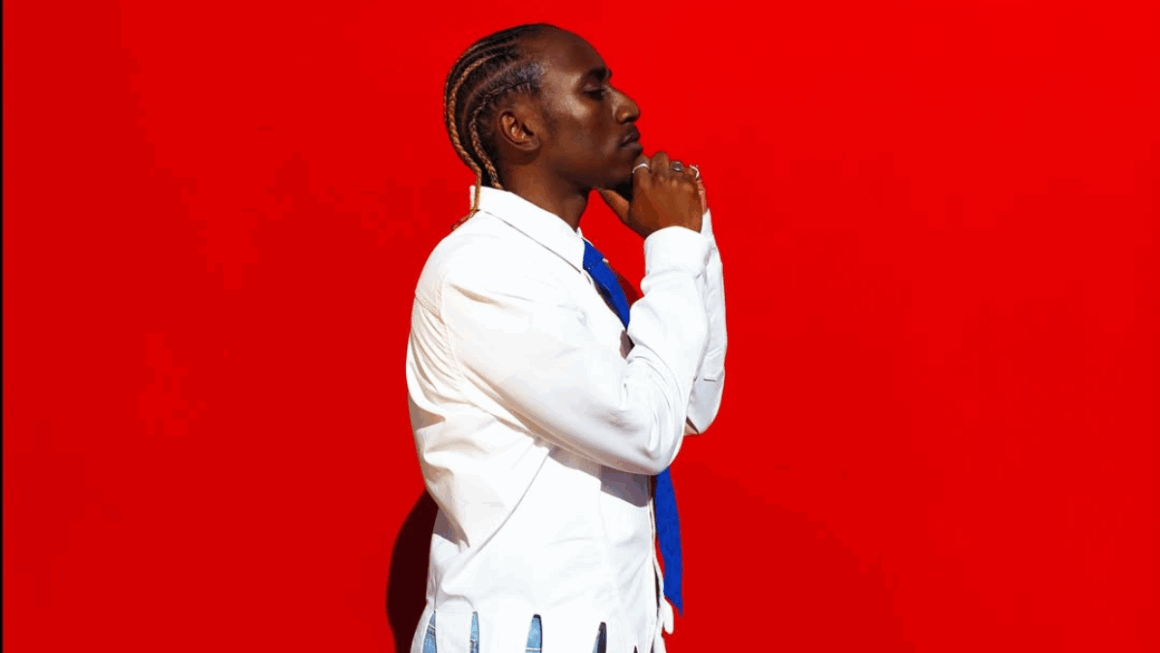
Ryan Shepard: That’s definitely. Well, I’m, I’m definitely going to have it. My vinyl. This is the last one that I got. [Holds up vinyl of Luvanmusiq by Musiq Soulchild] so I’ll put it right next to that one.
Reggie Becton: And it sounds amazing on vinyl. I listened to the—I got the—a vinyl maybe Sunday. It’s Sunday. I got the test press in the vinyl, and it’s like 10 times better than on these Apple AirPods.
Ryan Shepard: The last, the last question I’ll ask you, when I was talking to Megan earlier, she mentioned three words that went with the album, which were “fear, fire, and freedom.” And when we were talking last time, you mentioned, we talked a lot about, obviously because of the project, sadness. And you said that to me, “Sadness is just another emotion that we feel.” “It’s the equivalent of happiness, anger, even anxiety.” For you, how would you define those three words, “fear, fire, and freedom?”
Reggie Becton: I think fire is just being alive. I think fire is passion. I think fire is the thing that lights you up. You know, like the why in your body. To me, that’s what fire feels like. It’s like the burning of, “I have to get something out of me.” “That fire inside,” you hear people say. And I think with this project, that was going on. I felt like fire in a cage. I’m making this project, and I just was like, “Okay, how do I get out this cage that I put myself in, or that I just allowed the world to put me in?” And I’m still working on getting out that cage, but I’m a lot closer to getting out. And then I think freedom is on the other side of that cage. And I think fear is what put me in that cage, if that makes sense. I think fear is just the, I think fear comes from our validation, the need for our validation. When you need other people to say this about you or say that about you, you’re always kind of trying to please people in a way. And the fear of not being able to please everybody is a real thing, and it causes you to have to be something that you’re always on, that, you know. You always feel like you’re on. You always feel like you have this mask, or you’re changing this mask depending on who you’re around, out of fear of someone seeing you for who you really are. And I think that those are the stages I feel like I was in. SadBoy may have been the fear stage. And now this album’s like that fire stage, and post-album, I’m hoping to hit the freedom stage.
Ryan Shepard: Got you. I guess the last part is just doing the quick hits. Given that this song is, I mean, the album is called The Last Great American Summer, I wanted to ask you about the three places that at least I associate you with, which were Philly, DC, and LA. Can you pick a song for each city that feels like summer in that city?
Reggie Becton: Yes. Philly, for sure, I would say, the summer of—what’s this? Let me see, when did—just so we quote it right. Philly. I would say, “Oh, wow.” Was it that? Yes, that was it. The summer 2016 in Philadelphia, Pennsylvania, was the greatest summer of my life. Drake’s “Controlla,” “One Dance,” “Work” by Rihanna. Anytime you heard those three—yeah, I don’t know. I just feel like all of my friends graduated. A lot of my friends graduated in ’25. I graduated 2015 and graduated 2016. So everybody was finally done with college, but everybody was kind of still around Philadelphia, still trying to figure out where they were at. And when I tell you, we had the time of our lives. That was the summer before I moved to LA, and it was the time of my life. So I would say, it’s unfortunate that—okay, and you can add “Dreams and Nightmares” in there, too, just for the Philly people on my back. But that summer, that “Controlla,” “One Dance,” “Work” by Rihanna mix up that was going off at every party, and it was literally undeniable. I think in DC, a song that reminds me of summer in DC, honestly, it’s probably “Overnight Scenario.” I feel like that is a really good one. I feel like, of course, “Sexy Lady” is always a summer anthem. I’m trying to think of like, a summer song that we love in DC. I don’t know. I’m trying to think of, “What is a summer anthem in DC?” “You go to DC and, ‘Yeah, put that on in the summer.'” I don’t know, but those like “Overnight Scenario” is one of my favorite Go-go songs ever. It’s just perfect. And then LA summer song, I don’t know, like, what do we listen to? What’s my song of the summer this year? I’m trying to think, what’s the song that was doing the summer? I’m like, “Yeah, also going back to DC, GoldLink, ‘Fall In Love.'” Also, is a great summer. Now, that one, I wouldn’t say it’s the DC anthem of summer, but for me, that song feels like DC summer. That song feels like DC summer. And GoldLink, I’m still trying to get a feature, by the way.
Ryan Shepard: Yeah, another person had a good album this year.
Reggie Becton: Yeah, amazing album. LA, I play it easy, but like, “Return of the Mack” is a good LA, summer song.
